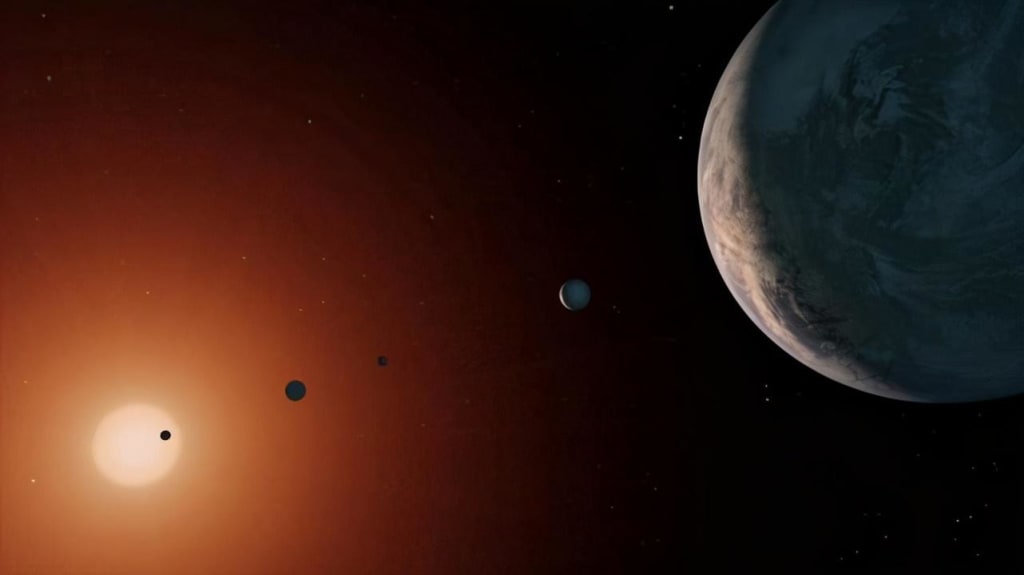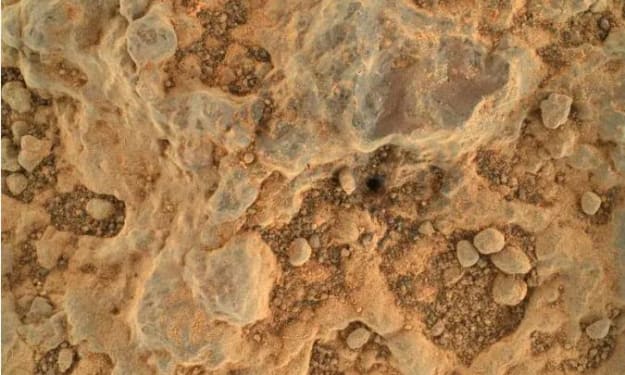A star older than the universe?
How old is it?

Earlier, scientists found that the metal content of the star HD 140283 was very low, much lower than that of the Sun, as determined by stellar spectroscopy. With a better understanding of stellar evolution, scientists realized that it is a very old star, most likely of group II (our Sun is a group I star), because of its low metal content, which means that it formed when there were not many metals in the universe.
Using computer simulations based on quantum mechanical models of stellar evolution, its age is estimated to be 14.46 billion ± 800 million years or between 13.66 billion and 15.26 billion years.
Since the age of the Universe is estimated to be 13.79 ± 0.021 billion years, a part of the age estimate range of HF 140283 is outside the age estimate range of the Universe.
Note that both age estimates (of the stars and the Universe) are only estimates, not absolute numbers. They are based on our current understanding of stellar evolution and cosmology. Note also that the estimated stellar age has a much larger uncertainty (5.5% for the stellar age and 0.1% for the age of the Universe). This means that the lower limit of the estimated age of this star, the interval of 13.66 to 13.79 billion years, easily falls within the estimated age of the Universe.
So the scientists are not saying that they have found a star older than the universe. Instead, they say "there is some uncertainty in the age of HD 140283, and there is some uncertainty in the age of the universe, and the estimates do not exactly overlap. This makes us curious, and this requires further study!"
However, journalists reinterpreted this information as "Wow, scientists have found a star older than the universe, science must start over!" There are natural reasons why this is a dramatic, best-selling headline, but there are also reasons why these journalists are not scientists and are not used to understanding how scientists express themselves.

It's not older than the universe.
The oldest stars appear to be older than the universe itself, but a new study is helping to clarify this seeming contradiction.
Previous studies have estimated that the Milky Way's so-called "Methuselah stars" are 16 billion years old. That poses a problem since most researchers agree that the Big Bang that created the universe occurred about 13.8 billion years ago.
Now, a team of astronomers has combined information about its distance, brightness, composition, and structure to come up with a new, less absurd age for the Methuselah star.
Howard Bond, lead author at Penn State and the Space Telescope Science Institute in Baltimore, said in a statement, "Add all these factors together and you get an age of 14.5 billion years, with a residual uncertainty, which makes the age of the stars compatible with the age of the universe."
It's hard to measure and calculate "something" that's very far away or very old. But to make it even more exciting, this Methuselah star is hyped up. But in any case.
No scientist thinks it's older than the universe. That's silly.
It's hard to calculate the age of stars. And the farther away they are or the older they are, the harder it is to do that.
Its light is somewhat blue-shifted, which makes this even more difficult.
In addition, the high speed of the stars makes this even more difficult.
The age of the universe has been calculated to be about 14 billion years, and this star was born 14.5 billion years ago, plus or minus 800 million years. So this fits quite well.
As already mentioned in the previous answer, there is nothing older than the universe. Any number that implies this simply means that the data used to determine the age of objects and the universe can be interpreted in different ways, and the age of the universe is inherently subject to some uncertainty, and the age of objects thought to be older than the universe is always subject to even greater uncertainty. You need special circumstances to determine the actual age of a star. Without external evidence, all we can say about the Sun is that it is about 4 or 5 billion years old, and even that range may not be large enough. Only if rocks from the Earth, the Moon, and space (meteorites) tell us that these planets are 4.578 billion years old can we say that the Sun must be 4.6 billion years old. For any other star, the "age" is just an educated guess.
So the question we are asking is impossible because the wording in the question is already contradictory.
By the way. Where have you read, heard, or found a claim that a star older than the universe has been discovered? It was only discovered this century, and it is the oldest star ever detected. Perhaps you misread the press statement. Also, at best, one could say that the oldest known star in the universe has been discovered. But it cannot be said with certainty that the oldest existing star has been found. It can never be said that the oldest existing star has been found with certainty. There is nothing to prove that another star older than the oldest discovered star does not exist.
About the Creator
Maria Lahti
The only time the dawn will break is when we awaken. It is not only the dawn that breaks. The sun is but a morning star.






Comments
There are no comments for this story
Be the first to respond and start the conversation.